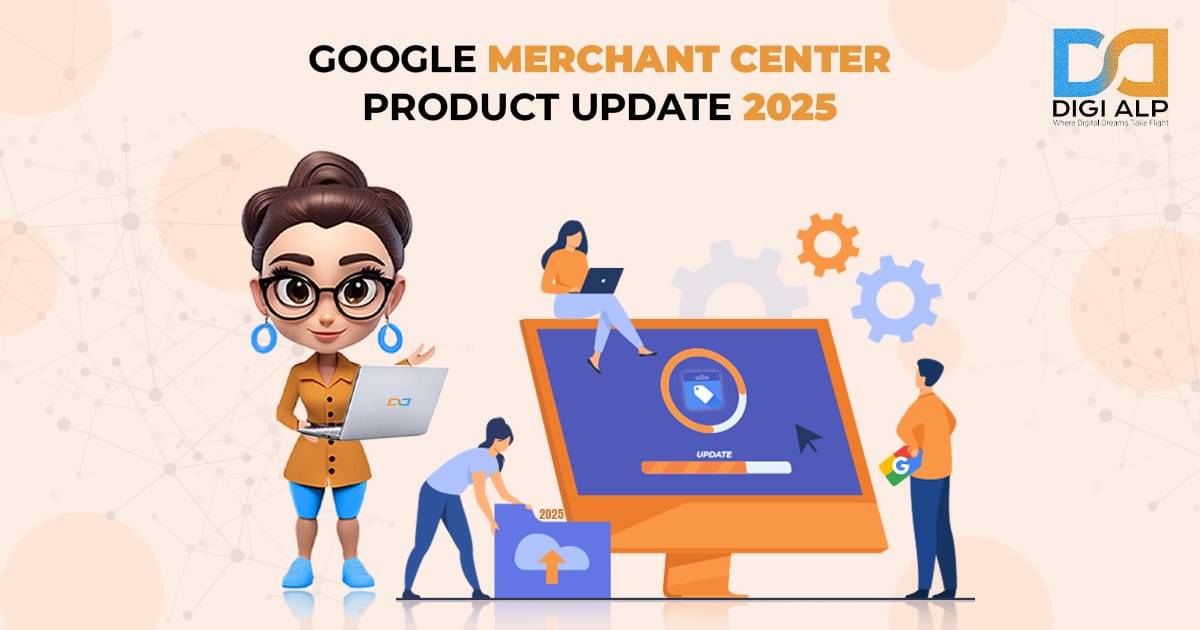Each year, Google updates its Merchant Center product data specification to improve the shopping experience for both consumers and merchants. These changes aim to keep up with evolving e-commerce trends, enhance data accuracy, and comply with international regulations.
The 2025 update, announced on April 8, introduces several key changes that impact how product information should be submitted to Google Merchant Center. Some of these updates are effective immediately, while others will go into effect on July 1, 2025. It’s crucial for merchants to understand and implement these updates to avoid potential disapprovals and maintain eligibility for Google Shopping ads and free listings.
In this blog, we’ll break down all the major changes in the 2025 update and explain what they mean for your product feeds.
Immediate Changes (Effective April 8, 2025)
1. Change in Handling Down Payments for Installments
Google will no longer support the use of the price attribute to indicate down payments for products sold with installment pricing.
What’s new?
- Merchants must now use the downpayment sub-attribute within the installment attribute.
- The price attribute should reflect the total cost if the item is paid for in full, rather than through installments.
Why this matters:
This change ensures consistency and clarity for customers comparing pricing structures, especially for products that offer financing or installment plans.
Action required:
If you sell products with installment pricing and currently use the price attribute to show a down payment, update your feeds immediately. Replace the old structure with the proper use of the installment and downpayment sub-attributes to remain compliant.
2. Replacement of Energy Efficiency Class Attributes in EU Countries
In the European Union, Google is retiring the individual energy efficiency class attributes in favor of a broader certification attribute.
What’s changing?
- The certification attribute will now be used for products that require graphical energy efficiency labels, both rescaled and non-rescaled.
- The old energy efficiency class attributes will still be available in Norway, Switzerland, and the UK.
Why this matters:
The move to a single certification attribute simplifies product labeling compliance across EU member countries and aligns with newer EU regulations.
Action required:
If you sell products in the EU that include energy efficiency classifications, switch to the certification attribute now to avoid feed errors. If you sell in the UK, Norway, or Switzerland, you can continue using the existing attributes.
3. New Shipping Attributes at the Offer Level
To provide better transparency and more accurate delivery information, Google is expanding its shipping attributes at the offer level, matching what was previously available only at the account level.
New attributes include:
- carrier_shipping: Specify the shipping carrier used.
- shipping_handling_business_days: Indicate the business days required to handle and prepare an order before shipping.
- shipping_transit_business_days: Define the number of business days it takes for the shipment to be delivered once dispatched.
Why this matters:
These changes allow merchants to provide detailed shipping timelines per offer, helping buyers better understand delivery expectations and increasing trust in listings.
Action required:
Begin using these new shipping attributes to provide more granular and accurate delivery information. This can improve user experience and potentially increase conversion rates.
Changes Effective July 1, 2025
1. Updated Guidance on Member Pricing
From July 1, 2025, merchants can no longer submit member-exclusive prices using the price or sale_price attributes.
What’s changing?
- Member prices (for both paid and free-to-join loyalty programs) must now be submitted using the loyalty_program attribute.
- This change applies globally.
Why this matters:
Google is standardizing how special pricing is reported to improve clarity and prevent misuse of pricing fields.
Risks if non-compliant:
- Using price or sale_price to reflect member-only discounts after July 1 may lead to offer or account disapprovals.
Action required:
If you offer member pricing, ensure it is submitted via the loyalty_program attribute in supported countries. Stop using price or sale_price fields for member pricing to stay in compliance.
2. Removal of U.S. Sales Tax Attributes
Google is also retiring the requirement for U.S. merchants to provide sales tax information.
What’s changing?
- The tax and tax_category attributes, along with tax settings in Merchant Center, are no longer mandatory.
- Offers previously disapproved due to missing tax information may now start receiving traffic.
Why this matters:
This simplifies feed management for U.S.-based merchants and reduces the barrier to entry for those unfamiliar with U.S. tax regulations.
Potential impact on campaigns:
- Since previously disapproved items may now be eligible, your Shopping campaigns could see an increase in traffic and, potentially, spend.
Action required:
Although tax data submission is now optional, monitor your campaign performance and budget allocations closely, especially if new offers begin to receive traffic.
Staying Compliant and Competitive in 2025
Google’s 2025 product data specification update brings several significant changes, particularly around how merchants report installment pricing, energy efficiency labelling, shipping timelines, and special pricing. While these updates may require some technical adjustments to your product feed, they’re designed to improve the clarity and consistency of product listings, ultimately benefiting both shoppers and sellers.
To stay compliant and maximize visibility:
- Review and update your feeds according to the new specifications.
- Use the correct attributes for pricing, shipping, and certifications.
- Regularly monitor your Merchant Center diagnostics to identify and resolve any issues quickly.
Implementing these updates early—especially those effective immediately—can help you avoid disapproval and gain a competitive edge in Google Shopping.
Click here for source.

